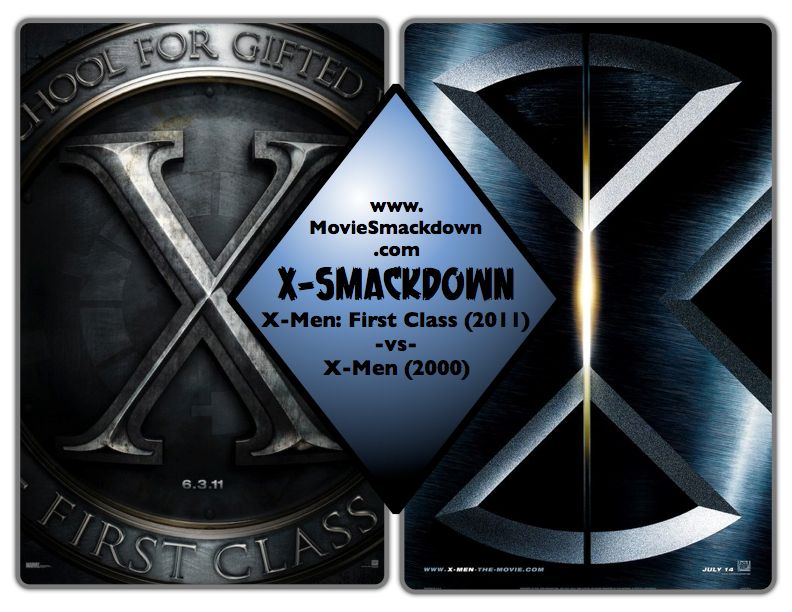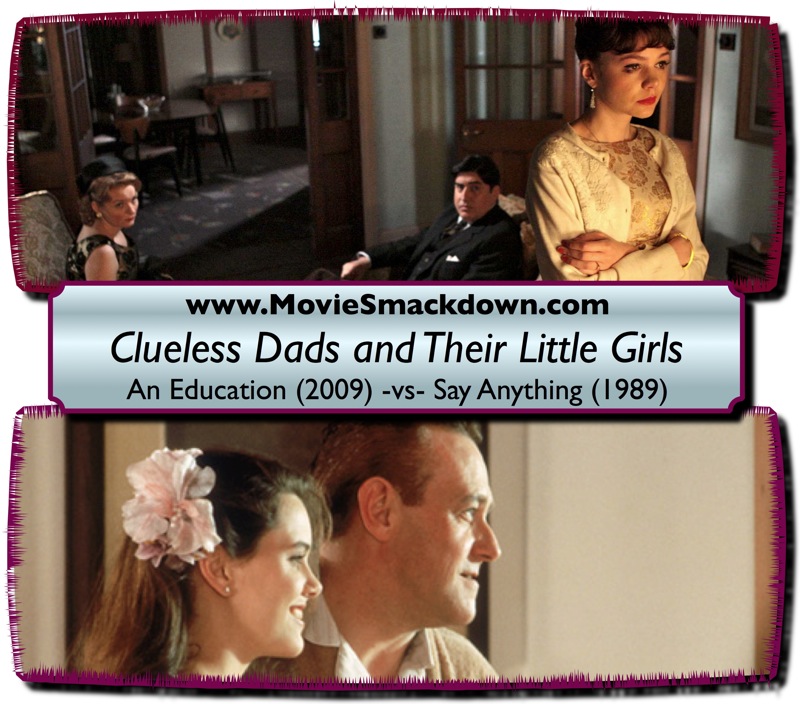
 The Smackdown
The Smackdown
The last time we saw mutants on the big screen, it was the disappointing third installment in the X-Men trilogy, appropriately titled X-Men: The Last Stand. What had begun as a promising franchise under the steady hand of director Bryan Singer turned to crap under the watch of replacement director Brett Ratner. As Joel Schumacher had done with the Batman franchise, so too had Ratner done with the X-Men.
Now, after five years, the mutants are back. Instead of trying to resurrect the franchise by fixing the problems of the previous film (which included killing off two of the main characters), the new franchise is starting over at the beginning with a prequel. Now we have a chance to look at two different beginnings for the X-Men franchise and see which one works better.
[singlepic id=619 w=320 h=240 float=right]
The Challenger
The origins of Charles “Professor X” Xavier (James McAvoy) and Erik “Magneto” Lehnsherr (Michael Fassbender) are explored in this story of mutants set in the 1960s. These were the days of Kennedy’s Camelot, and the formative years of the civil rights movement in America.
Before they were enemies, Charles and Erik were two of several mutants recruited by the CIA to help defend the country against a mutant threat. They find themselves contending with a group called The Hellfire Club, whose leader Sebastian Shaw (Kevin Bacon) is trying to ignite a nuclear war between the U.S. and Russia.
Erik’s motives are clear from the beginning, but Charles hopes to free Erik from the rage and sadness that consumes him. As Charles works to train these mutants to use their gifts, he discovers that it may come at too high a price.
[singlepic id=192 w=320 h=240 float=right]
The Defending Champion
The movie world was introduced to the mutant superhero team in 2000, with a film that pitted Charles Xavier (Patrick Stewart) and his X-Men against their arch-nemesis Magneto (Ian McKellen). In an effort to make the world safe for mutant-kind, the Master of Magnetism and his Brotherhood of Evil Mutants begin by kidnapping Senator Kelly (Bruce Davison). The senator is very vocal about his anti-mutant stance, and threatens to strip mutants of their civil rights.
But Magneto isn’t just concerned with the senator. He wants use a machine to amplify his powers and transform a group of world leaders into mutants. The X-Men, with the help of a new recruit called Wolverine (Hugh Jackman), must take on Magneto and his brotherhood. And in doing so, help defend a world that sees mutants as freaks.
The Scorecard
It’s uncanny. In the comic book community, Marvel Comics’ X-Men were as close to a sure thing as you could get. But in 2000, mainstream movie audiences had no idea what a mutant was or who the X-Men were. Keep in mind, this was before Spider-Man was released in 2002 and revitalized the genre. The last comic book movie had been Batman & Robin in 1997, and it was a disappointment with critics and fans.
Fans of the X-Men comics had been clamoring for a film for years. So when 20th Century Fox released X-Men, there was a built in fan base to boost the box office — just in case. But it wasn’t necessary. Audiences took to X-Men, in no small part to the great action and the strong lead in Hugh Jackman’s Wolverine.
In truth, X-Men had a dream cast, including Stewart (Star Trek: The Next Generation), McKellen (who would also play Gandalf in The Lord of the Rings trilogy), Halle Berry (before her Academy Award), and a young Anna Paquin (known now for her role as Sookie on HBO’s True Blood).
It’s hard to remember when the X-Men were still the best-kept secret in comics. Now, everyone seems to know about Wolverine, Cyclops, and Jean Gray. But how will audiences feel comfortable with a new group of recruits who have no resemblance to the original cast?
The story of X-Men: First Class is a period piece, and that serves it well. It’s one part political intrigue, one part spy story, and one part comic book adventure. The film begins with a deeper look at Erik’s back story in Nazi-occupied Poland in 1944 (which we glimpsed as prologue in the 2000 film). We also see a young Charles Xavier in America befriend another mutant named Raven (Jennifer Lawrence), a shape-shifter who becomes like a sister to him.
The two men could not have had more disparate upbringings. One in a concentration camp forced to be the subject of Nazi experiments. The other in a upper-New York state mansion and later an Oxford education. And it’s clear from the outset that these beginnings will shape their actions for years to come.
As an X-Men fanboy, I was also put off by the way the writers of the 2000 film had cherry-picked their team without regard for the history of the characters. For example, how was it that Storm (Berry) was a member of Xavier’s staff before Wolverine showed up. Why was Iceman (one of the original X-Men) just a kid? And how was Rogue involved at all?
For X-Men: First Class, however, I had no preconceived notions of which characters should be involved or how they should be portrayed. Though I didn’t like that Emma Frost (January Jones) can transform to diamond (a talent that didn’t show up until MUCH later in the comics). But overall, the characters are intriguing.
Comparing the two films, the difference is not in special effects or in talent. Clearly, both stories have those in spades. And while some of the effects in the original 2000 film may seem a bit dated, they still hold up well a decade hence.
No, the biggest difference in the two films is their story. And while I always loved the original X-Men film for its ability to weave together so many great characters, the focus of the story was murky. I never quite understood how Magneto was using his power to turn people into mutants. I didn’t understand who had built his device or why certain subplots were happening.
The Decision
The simple truth is that X-Men: First Class is a much better origin story. It eases the audience into the idea of what a mutant is and that they are slowly starting to be found. The overall crisis that much be averted is very straightforward. Linking it to history’s Cuban Missile Crisis was a stroke of genius. It gives us a very clear understanding of the stakes involved and helps us see how it could start a war.
Most of all, we care for these characters more. Charles and Erik are more real in X-Men: First Class in part because we see them as people first, heroes second. By the time they show up in our present (as in the 2000 film), the X-Men are comic book stereotypes, despite the great performances that went into them.
For me, X-Men: First Class graduates with honors. This is the better of the two X-Men beginnings and a more interesting film all the way around.




the last time we saw mutants on the big screen was the dreadful Wolverine: Origins (2009) not x-men last stand (2006) i’m just saying. a bit late now i suppose.
Comparing X-Men: First Class to Star Trek (2009) would be very difficult. Yes, they’re both reboots of great franchises, but the cast of Star Trek had some very big shoes to fill. McAvoy and Fassbender never tried to mimic Stewart and McKellen. They created their own versions of the characters. But the cast of Star Trek didn’t just play Kirk, Spock, and McCoy. They played William Shatner, Leonard Nimoy, and DeForest Kelley playing Kirk, Spock, and McCoy. And they pulled it off SPECTACULARLY. When it comes to reboots, I think Star Trek did the better job.
While watching X-Men: First Class, I started to think it really is a bit like the J.J. Abrams’ Star Trek — presenting the early backstory instead of just going back to the basics one more time.
I would have given it the win, as you did, against the original X-Men but it would have lost against Star Trek.
What say you?